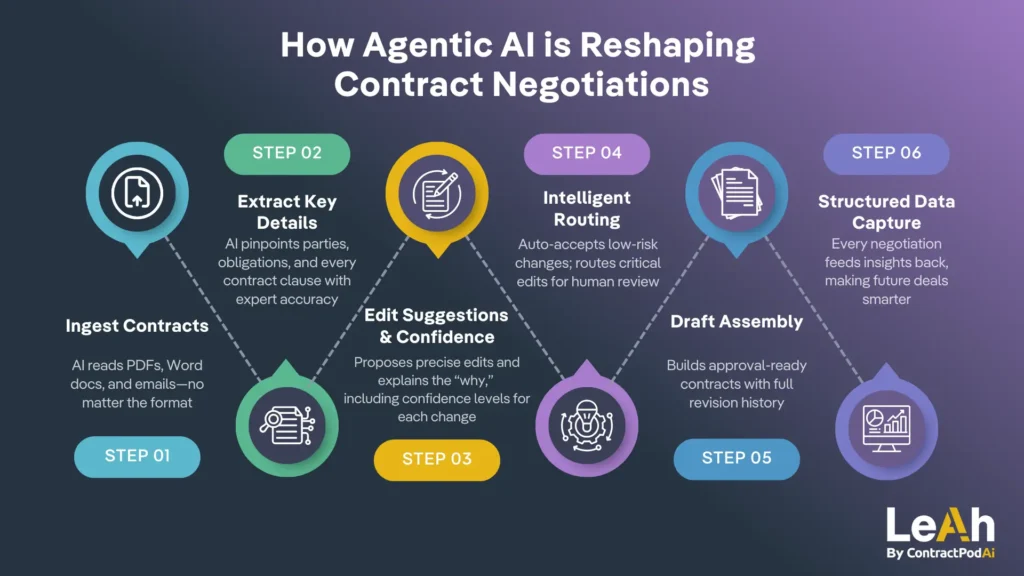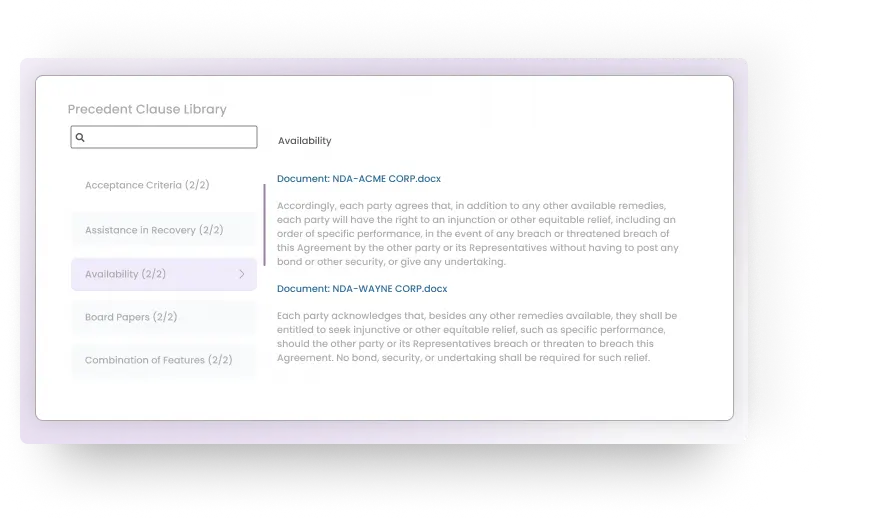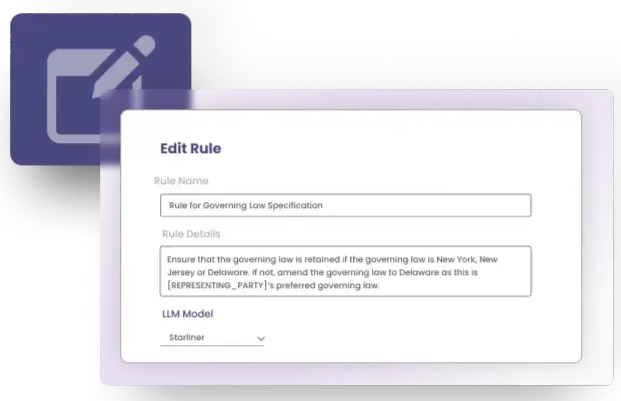Published: February 12, 2025
Updated: July 24, 2025
Executive Summary: AI-Powered Contract Negotiation
AI contract negotiation reduces review times by up to 50% while improving accuracy and risk management**, according to Gartner research. Contract inefficiencies currently erode up to 9% of total contract value, but organizations implementing AI-powered solutions report 40% improvement in workflow efficiency with typical results including 50% faster cycle times and 60% reduction in post-signature disputes within weeks. Modern AI systems use multi-model intelligence to automatically extract and analyze contracts, compare against playbooks, generate edit suggestions, and identify 68% more dispute risks than human reviewers. With enterprise-grade security and Gartner predicting 40% of negotiations will involve AI agents by 2028, AI contract negotiation delivers measurable ROI by freeing legal professionals from routine review work to focus on strategic decision-making.
What are Today’s Contract Negotiation Challenges?
Contract negotiations are consuming more of your legal team’s time than ever before. Between complex regulatory requirements, increasing deal volumes, and the pressure to accelerate turnaround times, legal departments face an unprecedented challenge in maintaining both speed and accuracy while still reducing risk to the business.
The impact on your bottom line? It’s significant. Research shows that contract inefficiencies can erode up to 9% of total contract value. That’s real value disappearing through prolonged negotiations, missed opportunities, and resource-intensive review cycles.
Here’s where transformation becomes essential. Leading organizations are discovering that AI-powered contract negotiation isn’t just an efficiency play; it’s a strategic advantage. Gartner’s analysis reveals that AI adoption in legal departments can cut contract review and approval times by up to 50%, while simultaneously improving accuracy and risk management.

But this isn’t about replacing human expertise with technology. It’s about empowering your legal professionals with intelligent tools that handle routine analysis, surface critical insights, and enable them to focus on high-value strategic work. Modern AI solutions bring legal intelligence directly into your negotiation process, helping you secure better agreements faster while positioning your organization for long-term success.
In this comprehensive guide, we’ll explore how AI transforms contract negotiations from a resource-intensive process into a competitive advantage. You’ll discover practical approaches to implementation, measurable outcomes from real-world deployments, and a clear path to modernizing your legal operations.
Today’s Negotiation Challenges: Slow, Risky, and Resource-Intensive
Let’s be honest about where most legal teams are today. You’re likely dealing with contracts that feel like they’re multiplying faster than you can review them — and the business wants them done yesterday. Each one still demands the same meticulous attention to detail, but the pressure to move faster keeps building.
The time burden hits harder than you might think. According to Thomson Reuters research, indemnity clause reviews alone can consume 30+ minutes per clause on routine contracts. Now multiply that across dozens of contracts each week. Your senior counsel spending hours on routine clause review? That’s strategic time lost forever.
Then there’s the version control nightmare we all know too well. McKinsey’s research confirms what you’re experiencing: typical Master Service Agreements average 4+ drafts before signature. Each revision cycle means more delays, more confusion, and more chances for critical terms to slip through the cracks.
But here’s the statistic that should keep you up at night: Deloitte’s analysis found that 68% of post-award disputes trace back to missed clause dependencies. These aren’t just minor oversights; they’re ticking time bombs that can explode into costly legal battles and fractured business relationships months or years down the line.
Your legal team is likely spending up to 80% of their time on routine document review. That’s not sustainable, and more importantly, it’s not strategic.
Multi-Model Intelligence: The Foundation of AI-Powered Negotiations
The game has changed. Today’s AI isn’t just about automating simple tasks or pulling out discrete data points; it’s about bringing genuine legal intelligence to your negotiation process.
| Horizontal Models | Vertical Models |
Vertical Solutions
|
| General Models trained on Public Data | Models trained with domain-specific (e.g., legal data) |
Solutions and features built for solving legal-specific use cases
|
|
– High Variability in responses/Hallucination Examples: OpenAI, Google, Anthropic, Meta, and other LLM providers |
– Models with high expertise in the targeted legal domain Industry-focused – Deep domain knowledge |
– Guardrails
Security, privacy and data protection – Legal and organization-specific models (business rules and knowledge base) – Engineering techniques to minimize hallucination – Vertical applications ready to use at scale (e.g., Legal review, risk analysis, etc.) |
Modern multi-model AI models combine general-purpose capabilities with deep legal expertise, delivering insights that actually matter to your practice. Recent research demonstrates that advanced multi-model LLMs can improve the efficiency of legal workflows by as much as 40% compared to traditional AI models.
What does this mean for your team? These systems understand context the way a seasoned lawyer does. They recognize when a seemingly standard indemnification clause contains unusual risk allocation. They spot patterns across thousands of contracts that would take human reviewers months to identify. Most importantly, they can learn from every negotiation, building institutional knowledge that stays with your organization — when and how you choose to leverage it.
These advancements show how multi-mode approaches bridge general AI capabilities with domain-specific expertise, leading to more accurate and efficient outcomes in legal practice. It’s not just faster; it’s smarter.
The AI Negotiation Technology Stack
AI in Legal: From Static Tools to Strategic Partners
As legal technology has evolved, so has the intelligence behind it. What began with rule-based systems has advanced through several stages of AI sophistication:
- Natural Language Processing (NLP)
- Machine Learning Risk Scoring
- Generative Language Models
- Continuous Learning Models
- Multilingual Semantic Search
- Agentic AI
Let’s break down what’s actually powering this transformation — because understanding the technology helps legal teams make smarter decisions about implementation:
- Natural Language Processing goes beyond keyword matching. It understands legal concepts, recognizes clause variations, and applies redline rules, even when the language looks completely different.
- Machine Learning Risk Scoring quantifies exposure instead of just flagging issues, helping prioritize negotiation points based on real business impact.
- Generative Language Models craft counter-proposals that reflect your tone and strategy, with supporting rationale that makes sense to the other side.
- Continuous Learning Models get better over time. Every contract closed improves the system’s understanding of your organization’s patterns and preferences.
- Multilingual Semantic Search ensures consistency across global agreements, even when contracts are in different languages or local legal dialects.
- Agentic AI acts as a digital negotiation assistant — making decisions within guardrails, handling repetitive tasks, and orchestrating workflows without constant oversight.
Delivering Faster, Smarter Contract Intelligence
When you implement AI-powered contract negotiation, everything speeds up without sacrificing quality. In fact, quality improves because AI catches nuances that human reviewers might miss during long review sessions.
Your team experiences this transformation immediately. Contract reviews that once took days now complete in hours. Risk assessments that required manual cross-referencing happen automatically. Perhaps most importantly, your legal professionals can focus on the strategic decisions that truly require human judgment and experience.
Comprehensive Command Center Approach
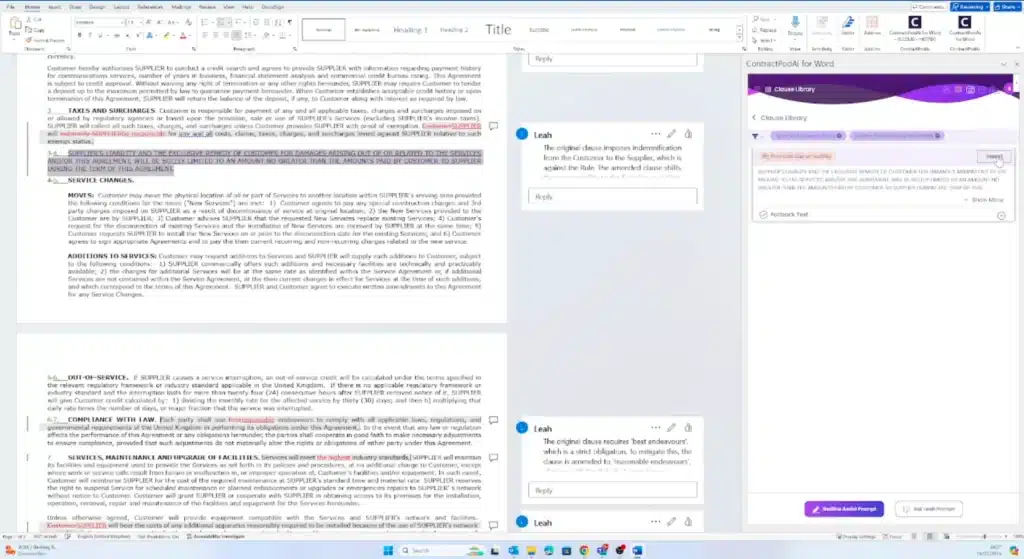
Remember the days of juggling multiple tools, switching between systems, and losing context along the way? AI platforms eliminate that friction entirely.
Today’s solutions provide a unified command center for all your contract intelligence. Review, analyze, negotiate, and track, all in one place. Your team works faster because they’re not constantly context-switching. They make better decisions because all relevant information is immediately accessible. And they maintain better oversight because every action is tracked and auditable.
This isn’t just about convenience. It’s about creating workflows that actually match how your legal team thinks and operates.
Dynamic Decision-Making Capabilities
Modern AI handles complex legal scenarios with increasing sophistication. We’re seeing systems that truly understand the nuances of contract negotiation:
- Converting chaos into clarity: AI transforms unstructured legal data, including emails, markups, and comments, into clear, actionable insights your team can use immediately
- Real-time strategic decisions: As negotiations evolve, AI adjusts its recommendations based on context, helping you respond dynamically to counterparty positions
- Proactive risk identification: Instead of reactive firefighting, AI surfaces potential issues before they become problems, strengthening your negotiating position
Scalable Intelligence That Improves Over Time
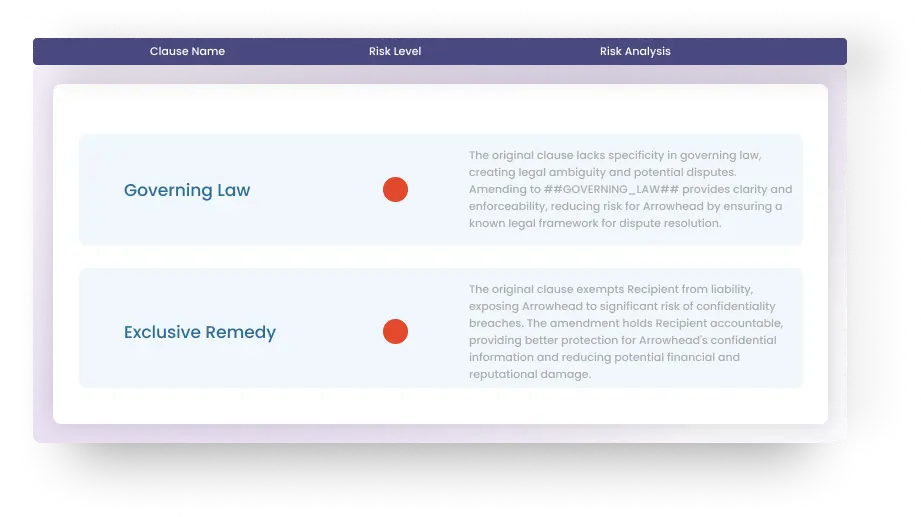
Unlike traditional software that stays static, a multi-LLM architecture evolves with the pace of innovation. As model capabilities advance — rapidly and continuously — new models can be swapped in with minimal disruption.
This makes AI a compounding investment. The system that supports legal teams today will become more accurate, more insightful, and better aligned to organizational needs over time.
How AI Negotiation Works: A Process Breakdown
Let’s walk through exactly how AI transforms your contract negotiation process:
- Multi-format contract ingestion: Whether it’s a PDF, Word document, or email thread, AI extracts and understands the content seamlessly
- Gen-AI powered extraction for unmatched accuracy: Identify parties, obligations, and every clause in every contract — all reportable, with precision that rivals expert review
- AI-generated edit suggestions with confidence ratings: Not just what to change, but why and how confident the system is in each recommendation
- Intelligent routing with acceptance recommendations: AI determines which changes can be auto-accepted and which need human review
- Clean draft assembly: Complete contracts with full revision history and approval tracking, ready for execution
- Structured data capture: Every negotiation feeds back into the system, making future negotiations even more effective
Accelerating the Contract Negotiation Process
The acceleration AI brings to contract negotiation is transformative, but it’s not just about speed. It’s about maintaining momentum while improving outcomes.
Traditional approaches often involve what we call “rip and replace,” starting fresh with each revision. AI enables “surgical redlining” instead. Precise, targeted changes preserve valuable context while eliminating inefficiencies. Your team spends less time on formatting and more time on strategy.
What once took weeks now happens in days. But here’s the key: this acceleration actually improves accuracy. AI doesn’t get tired during long review sessions. It doesn’t miss details because it’s rushing to meet a deadline. Every contract gets the same thorough analysis, whether it’s the first or the fiftieth of the day.
Enhancing Risk Management and Compliance
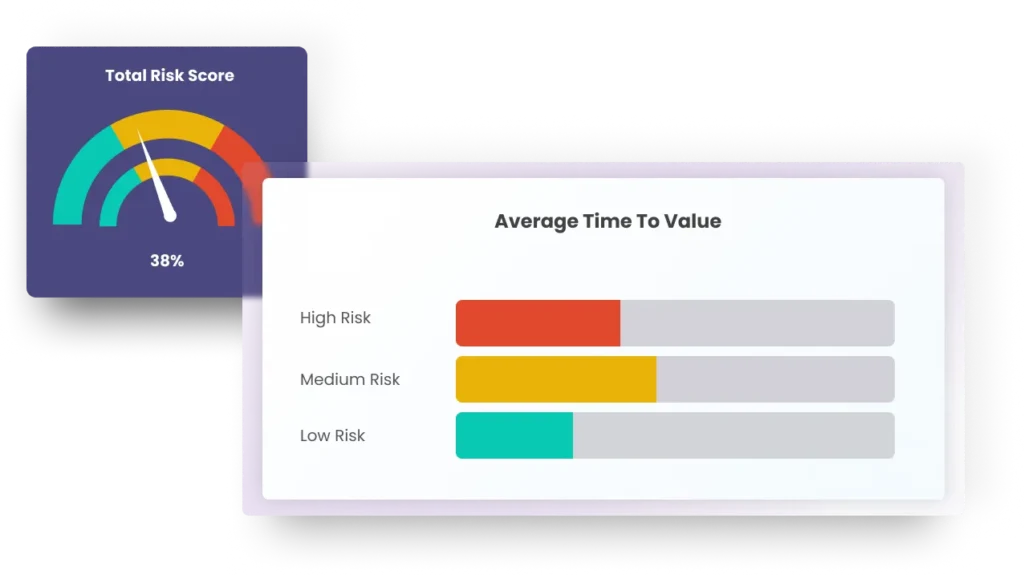
Risk management transforms from a defensive necessity to a strategic advantage with AI. Here’s how your team benefits:
Immediate risk flagging means no more discovering problematic clauses after signing. AI surfaces high-risk provisions the moment documents are uploaded.
Continuous compliance monitoring ensures every contract aligns with current regulations and internal policies, even as requirements evolve.
Historical pattern analysis prevents recurring issues by learning from past disputes and unsuccessful terms.
Accessible risk intelligence puts critical insights at every team member’s fingertips, democratizing expertise across your organization.
This proactive approach doesn’t just prevent problems; it positions you to negotiate from strength, backed by comprehensive risk analysis.
Implementation Requirements & Best Practices
Successful AI implementation isn’t about technology alone. It’s about thoughtful integration with your existing processes. Here’s what we’ve learned from successful deployments:
Data preparation makes or breaks your success.
Start by establishing a central repository, implementing OCR processing for legacy documents, and enriching metadata. Clean, organized data enables AI to deliver immediate value.
Governance frameworks need teeth and flexibility.
Define clear decision thresholds: which AI recommendations can be auto-accepted versus requiring review? Establish escalation paths that make sense for your organization. Most importantly, maintain human oversight where it matters most.
Change management is about people, not technology.
Begin with pilot programs using low-risk agreements. Let early adopters become internal champions. Build confidence through demonstrated success rather than mandated adoption.
Baseline KPIs before you start.
Measure current cycle times, touch points per contract, and redline frequency. You can’t improve what you don’t measure, and these metrics prove ROI to stakeholders.
Security and Compliance Considerations
Your contracts contain some of your organization’s most sensitive information. Security isn’t optional; it’s fundamental.
Here’s how modern AI platforms protect your data:
Enterprise-grade protections including SOC 2 Type II, ISO 27001, and GDPR compliance ensure your data meets the highest security standards.
Data isolation architecture means your contracts never mix with other organizations’ data. Complete separation maintains confidentiality.
Immutable audit trails document every AI suggestion and human modification. Full transparency for compliance and accountability.
Explainable AI provides clear rationales for every recommendation. Your team always understands why AI suggests specific changes, building trust and enabling informed decisions.
Advanced Clause Management and Intelligence
Real-time intelligence during negotiations changes everything. Your team no longer negotiates blind; they have immediate access to:
- Trend analysis across your entire contract portfolio
- Alternative clause suggestions based on previously successful agreements
- Benchmarking data showing how your terms compare to industry standards
- Success pattern recognition highlighting what works in similar negotiations
This intelligence transforms negotiations from adversarial battles to data-driven discussions focused on mutual value creation.
Key Performance Indicators for AI Negotiation ROI
Let’s talk results. Here’s what organizations are actually achieving:
- Cycle-time reduction with advanced CLM capabilities means deals close weeks faster
- Edit acceptance rates tell you when AI recommendations align with your team’s judgment; High rates indicate strong system training and configuration
- Risk exposure trends demonstrate improved negotiation outcomes through better liability caps and more favorable indemnity positions
- Draft efficiency measures the reduction in human touchpoints per agreement; Fewer rounds mean faster closes and happier clients
- Time-to-value acceleration surprises many organizations; Full efficiency gains often materialize within weeks, not the months typical of enterprise software
The Future: Autonomous Multi-Agent Negotiation
The future is arriving faster than most expect. Gartner predicts 40% of enterprise negotiations will involve AI agents by 2028. This isn’t science fiction; it’s strategic planning.
1. Multi-agent negotiation simulations will optimize for Pareto-efficient outcomes, finding solutions that maximize value for all parties
2. Game theory applications will bring sophisticated strategic thinking to every negotiation, identifying optimal positions and concession strategies
3. Regulatory frameworks are evolving rapidly. Smart organizations monitor the EU AI Act and emerging ABA ethics guidelines to ensure compliant implementation today that’s ready for tomorrow’s requirements.
Embracing the AI-Powered Future of Legal Negotiations
The transformation is clear: AI doesn’t diminish the legal profession; it elevates it. By handling routine tasks with superhuman consistency, AI frees your team to focus on what humans do best: strategic thinking, relationship building, and complex problem-solving.
Organizations implementing AI-powered contract negotiation report three consistent benefits:
- Speed through intelligent automation that accelerates without sacrificing quality
- Visibility into risks, opportunities, and patterns that were previously hidden in document silos
- Consistency across all agreements, building stronger compliance and negotiation positions
This technology delivers a competitive advantage today while preparing your organization for tomorrow’s challenges. Legal teams using AI handle more contracts, close deals faster, and achieve better outcomes, all while reducing risk and improving job satisfaction.
Ready to transform your contract negotiation process? Let’s explore how AI can work for your specific needs. Schedule a demo today to see these innovations in action and discover how they can revolutionize your legal operations.
Frequently Asked Questions
Can AI replace lawyers in contract negotiations?
AI enhances rather than replaces legal expertise. Think of it as giving your lawyers superpowers: they still make strategic decisions, but now they’re backed by comprehensive data analysis and freed from routine tasks. The combination of human judgment and AI capabilities creates outcomes neither could achieve alone.
How accurate are clause-level risk predictions?
Accuracy improves continuously through machine learning, but here’s what matters: even initial deployments typically achieve 85-90% accuracy on standard clauses. More importantly, AI catches risks humans miss due to fatigue or time pressure.
What data volume is needed for reliable model training?
While AI performs best with substantial contract history, you don’t need millions of documents to start. Many platforms come pre-trained on legal data and can deliver value immediately. Your organization’s specific patterns emerge after processing just a few hundred contracts, with performance improving as volume grows.
How does AI handle multi-jurisdiction agreements?
Modern AI platforms excel at multi-jurisdiction complexity. They maintain jurisdiction-specific rules, recognize regional variations in standard terms, and flag when local counsel review is needed. Multilingual capabilities ensure nothing gets lost in translation, while comparative analysis helps identify the most favorable governing law options.
